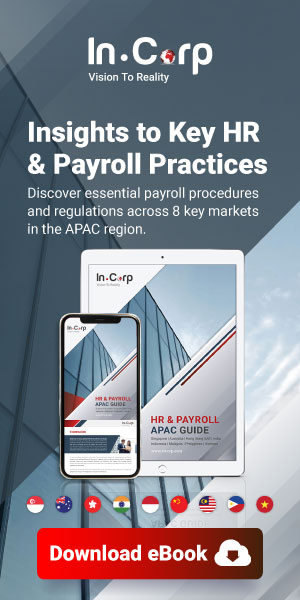Frequently, for business owners that run Sole Proprietorships, the immediate thought for growth is constituted with the idea of switching into a Private Limited entity.
Alternatively, with the numerous obstructions that a Sole Proprietor has to go through, the realization of a finer business model sounds intriguing. The idea of operating smoothly attracts Sole Proprietors to this change.
What is the Difference between Sole Proprietorship and Private Limited Company
A Private Limited Company allows a business to have better access to capital, has limited liability meaning that the debt of the company is capped at the value of shares. Additionally, Private Limited Companies attract investors and allow businesses to recruit well-trained employees, which ultimately benefits the functionality of the business.
On the other hand, a Sole Proprietorship has completely opposite characteristics and positions the burden on the owner itself.
Related Read: How to quickly incorporate a company in Singapore? »
Benefits and Risks of Converting Sole Proprietorship to Private Limited Company
There are various factors and elements that must be considered by a business prior to the conversion from a Sole Proprietorship to a Private Limited Company.
Independent Legal Entity
With running a Sole Proprietorship, the business owners benefit from the idea of complete authority. However, as a Sole Proprietor, the business and the owner are not considered to be separate legal entities. You are answerable for any debts and lawsuits filed against the business.Unlimited to Limited Liability
In correlation to your business being a separate legal entity, the type of liability changes as well. As a Private Limited Company registered in Singapore, the business owner and the company are independent identities, under the Singapore Companies Act (Cap 50). The business owner is not liable for the debts and lawsuits of the business. This is one of the main reasons that Sole Proprietors see as a pull factor into switching to a Private Limited Company.Perks of Taxation
Apart from the business owner and company being independent entities, Private Limited Companies prosper from tax benefits. Tax is paid on their profits, however, shareholder’s dividends are not taxed. This means that the taxes are an outcome of one’s personal income tax.Finite Capital
With Sole Proprietorship, the gateway to sourcing finance becomes narrow. Business owners might need to dwell into personal saving, or gaining loans from banks or external investors. On the other hand, with Private Limited Companies, the scope for sourcing finance widens, with the shareholders buying shares.Endless Succession
Reeling back to the business owner and the company being separate entities, the succession of a sole proprietorship is completely dependent on the existence of the business owner itself. The unfortunate demise or retirement of the business owner will also mean the expiration of your company, legally. Although, as a Private Limited Company, this does not apply, because the business owner and the company are independent entities in the first place.The Public Eye
Starting off your business as a Sole Proprietorship seems the way to go. Despite that, a Sole Proprietorship limits the scope of growth and the ability to hire employees with soaring competence. Additionally, large financial investors do not vision the higher growth and potential in a Sole Proprietorship compared to a larger, more established Private Limited Company.Admin Hardship
Although a Private Limited Company brings numerous perks, there is some administrative stress. Under the Singapore Companies Act, a Private Limited Company is governed by those laws and regulations.
Singapore Limited Liability Partnership (LLP) relish having a separate legal entity. However, there are some limitations that can be concerning.
Taxation
Being partnership-driven legal form, LLPs are taxed on their profits, which means that their profits are considered to be personal income for the partners. This varies from a Private Limited Company, as they benefit from corporate tax rates which are lower than personal income tax rates.Unlimited Liability
Even though LLPs benefit from having disjointed legal identities, the liabilities of the LLP is not limited to the firm itself. It is extended to the partners, which means that their personal assets could be seized if firm debts are not paid.
Related Read: Company Registration in Singapore: Ultimate Guide for Foreigners
Switching from an LLP/ Sole Proprietorship to a Private Limited Company.
InCorp will be able to facilitate the change from a Sole Proprietorship into a Private Limited Company, in the following process:
- Primarily, a new Private Limited Company will have to be incorporated. This will demonstrate the transition from a Sole Proprietorship/ LLP, with a conversion date indicated.
- Following that, all assets will have to be legally relocated to the new Private Limited Company, with the inclusion of current contracts of the old Sole Proprietorship/ LLP.
- Lastly, the old business must be discontinued and the ACRA must be posted that you have adjourned the continuity of the Sole Proprietorship/ LLP and converted to a Private Limited Company.
Transportation of assets from the old business to a new Private Limited Company based in Singapore.
Due to the swiftness of the process, all business assets must be transferred to the new Private Limited Company within 3 months of incorporation.
Financial Accounts
All financial accounts in the name of the old Sole Proprietorship must be terminated. New accounts in the name of the Private Limited Company must commence.Business Assets
All business assets of the old business in the name of the Sole Proprietorship can be transformed into compensated capital for the Private Limited Company. Any liabilities to creditors must be remunerated before the relocation of business assets.Legal Documentation
All leases, contracts, agreements, under the name of the Sole Proprietorship, must be renewed or re-signed in the name of the new Private Limited Company.Permits
In most scenarios, licences and permits are not interchangeable, therefore new permits need to be applied for to authority.
How can InCorp help?
Our team of experts can offer valuable guidance and recommendations about the above matters and help you convert your sole proprietorship to a private limited company easily. Get in touch with us today!
FAQs
-
- First, a private limited company will have to be incorporated, with the conversion date specified.
- Secondly, all business assets that belonged to the Sole Proprietorship must be transferred to the new Private Limited Company, within 3 months of incorporation.
- Lastly, the ACRA must be posted about the termination of the Sole Proprietorship and the conversion to the Private Limited Company.
- The base fee includes two sections. The first section being company name registration which costs SGD $15, and the Singapore company registration fees of SGD $300.
- Although a sole proprietorship allows for more control and authority by the business owner, a private limited company comes with several advantages. A private limited company is a separate legal entity from its shareholders which means that it is the company that is liable for its debts, and not its shareholders, which is not the case with a sole proprietorship.
- A private limited company involves taxation of profits instead of shareholders’ dividends, which means that the taxes are an outcome of one’s personal income tax.


